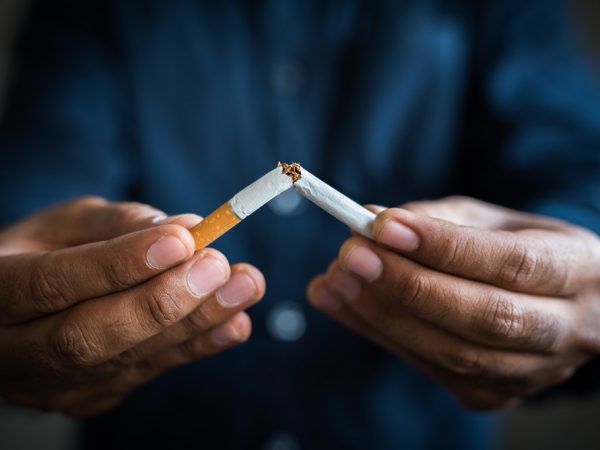Claire Fiddian-Green is the President & CEO of the Richard M. Fairbanks Foundation.
According to a new study published by the National Bureau of Economic Research (NBER), statewide Tobacco 21 (T-21) laws that prohibit the sale of tobacco products to people under the age of 21 appear to be having their intended outcome of reducing youth tobacco use. That is good news for states across the country, including Indiana, whose T-21 law went into effect on July 1, 2020.
Tobacco use is the leading preventable cause of death in the U.S., responsible for over 480,000 deaths each year, including an estimated 11,100 deaths in Indiana. Tobacco use also has significant and negative economic consequences. Smoking in Indiana, for example, translates into $3.3 billion annually in healthcare costs and another $2.8 billion annually in lost productivity for employers.
Importantly, research shows that tobacco use starts in adolescence. According to the Centers for Disease Control and Prevention, nearly 9 out of 10 adults who smoke cigarettes daily first tried smoking by the age of 18. What’s more, the relatively recent introduction of electronic cigarettes (“e-cigarettes”) has led to a worrisome uptake in nicotine use among teenagers. In 2019, 10.5% of middle school students and 27.5% of high school students in the U.S. reported the use of e-cigarettes in the past 30 days. Early evidence shows that teens who use e-cigarettes are more likely to start smoking traditional cigarettes, potentially resulting in a lifetime of addiction. That’s why public health advocates and business leaders alike have called for policies – like T-21 – that make it harder for young people to access tobacco products.
The NBER study, which is the first comprehensive analysis of the impact of T-21 laws on the use of tobacco products by young people, finds that statewide T-21 laws are associated with a 2.5 to 4.0 percentage-point decline in smoking participation among 18-to-20-year-olds.
The good news extends to 18-year-old high school students. The study finds that T-21 laws are associated with a 3.9 percentage-point reduction in tobacco cigarette use and an astounding 13.7 percentage-point decline in e-cigarette use among 18-year-old high school students. T-21 laws also appear to reduce tobacco cigarette use among 16-to-17-year-old high school students. Furthermore, preliminary evidence indicates that T-21 laws reduce access to the “social markets” where 16-to-17-year-old males can typically access traditional and e-cigarettes. Interestingly, T-21 laws appear to have a larger impact on males as compared to females, Black teenagers as compared to white teenagers, and high school dropouts as compared to students still attending high school or young people with a high school degree or more.
The advent of T-21 laws is relatively new, but the available evidence points to some good news when it comes to young people and their health: statewide T-21 laws that restrict access to tobacco products for people under the age of 21 appear to be working.



